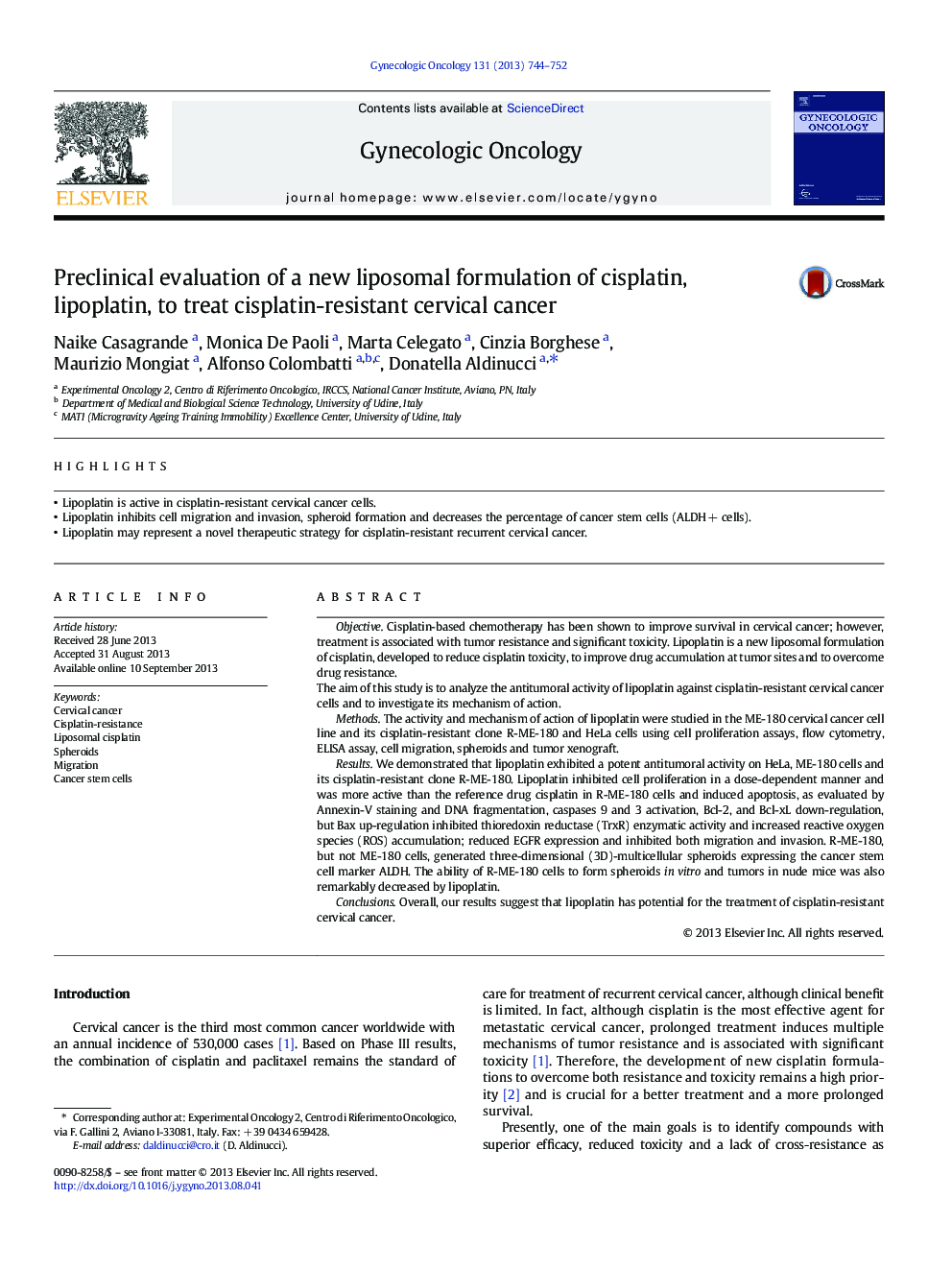| Article ID | Journal | Published Year | Pages | File Type |
|---|---|---|---|---|
| 3944740 | Gynecologic Oncology | 2013 | 9 Pages |
•Lipoplatin is active in cisplatin-resistant cervical cancer cells.•Lipoplatin inhibits cell migration and invasion, spheroid formation and decreases the percentage of cancer stem cells (ALDH + cells).•Lipoplatin may represent a novel therapeutic strategy for cisplatin-resistant recurrent cervical cancer.
ObjectiveCisplatin-based chemotherapy has been shown to improve survival in cervical cancer; however, treatment is associated with tumor resistance and significant toxicity. Lipoplatin is a new liposomal formulation of cisplatin, developed to reduce cisplatin toxicity, to improve drug accumulation at tumor sites and to overcome drug resistance.The aim of this study is to analyze the antitumoral activity of lipoplatin against cisplatin-resistant cervical cancer cells and to investigate its mechanism of action.MethodsThe activity and mechanism of action of lipoplatin were studied in the ME-180 cervical cancer cell line and its cisplatin-resistant clone R-ME-180 and HeLa cells using cell proliferation assays, flow cytometry, ELISA assay, cell migration, spheroids and tumor xenograft.ResultsWe demonstrated that lipoplatin exhibited a potent antitumoral activity on HeLa, ME-180 cells and its cisplatin-resistant clone R-ME-180. Lipoplatin inhibited cell proliferation in a dose-dependent manner and was more active than the reference drug cisplatin in R-ME-180 cells and induced apoptosis, as evaluated by Annexin-V staining and DNA fragmentation, caspases 9 and 3 activation, Bcl-2, and Bcl-xL down-regulation, but Bax up-regulation inhibited thioredoxin reductase (TrxR) enzymatic activity and increased reactive oxygen species (ROS) accumulation; reduced EGFR expression and inhibited both migration and invasion. R-ME-180, but not ME-180 cells, generated three-dimensional (3D)-multicellular spheroids expressing the cancer stem cell marker ALDH. The ability of R-ME-180 cells to form spheroids in vitro and tumors in nude mice was also remarkably decreased by lipoplatin.ConclusionsOverall, our results suggest that lipoplatin has potential for the treatment of cisplatin-resistant cervical cancer.
